The role of the enabling adult to support effective environments and engaging experiences
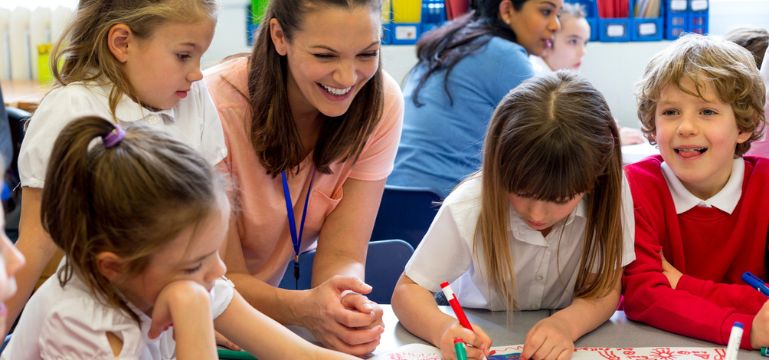
Quick links:
Information about the school
St. Andrew’s Primary School was established in April 2014 following the amalgamation of St. Andrew’s Infant and Junior Schools. There are currently 744 pupils on roll. Approximately 35% of pupils are eligible for free school meals and 39% are identified as having additional learning needs. At St. Andrew’s Primary School, diversity is seen as a strength, something to be respected and celebrated by all those who learn, teach and visit there.
Context and background to the effective or innovative practice
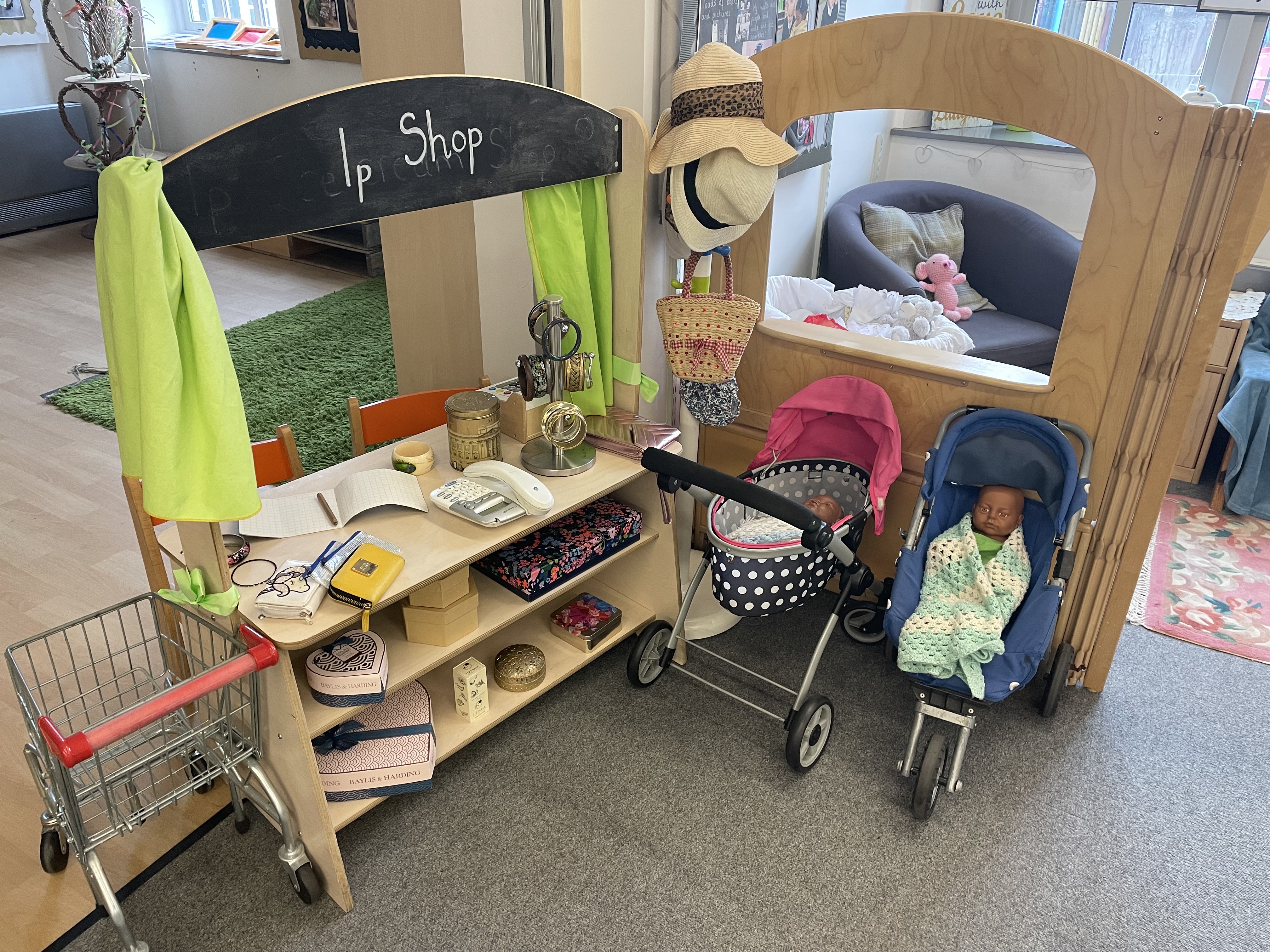 Leaders, teachers and teaching assistants at St. Andrew’s aim to provide authentic and purposeful learning experiences for all pupils through the three enablers underpinning the non-maintained curriculum. Staff have been inspired by its focus on the importance of play, schema and Froebelian principles. Practitioners in the school’s early years classes highlight the importance of deep-level involvement and uninterrupted active play for pupils, rooted in real-life, authentic situations.
Leaders, teachers and teaching assistants at St. Andrew’s aim to provide authentic and purposeful learning experiences for all pupils through the three enablers underpinning the non-maintained curriculum. Staff have been inspired by its focus on the importance of play, schema and Froebelian principles. Practitioners in the school’s early years classes highlight the importance of deep-level involvement and uninterrupted active play for pupils, rooted in real-life, authentic situations.
Description of nature of strategy or activity
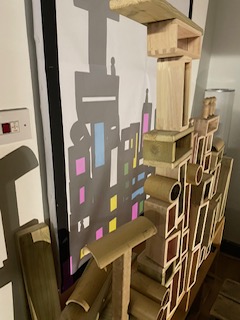 Practitioners adopt the notice, analyse and respond approach to observing younger pupils engagement with learning experiences indoors and outdoors. Froebel’s “freedom with guidance” approach encourages staff to facilitate pupils’ learning, offering them open-ended responsibility. Staff use planned and spontaneous observation approaches. During the ‘notice’ stage they seek to find out what drives pupils’ interest or curiosity, as well as how pupils choose resources and use the space available to them. During the ‘analyse’ stage, practitioners interpret pupils’ skills and knowledge development, assess their progress and analyse a pupil’s preferred schema. For example, whilst exploring teleporting within the block area, pupils demonstrate enjoyment in making enclosures (enclosure schema) using the blocks. Finally, observations are used as a catalyst for planning future learning experiences. This may include staff making adaptations to the environment, planning opportunities for pupils to refine or consolidate a skill and enrich experiences further.
Practitioners adopt the notice, analyse and respond approach to observing younger pupils engagement with learning experiences indoors and outdoors. Froebel’s “freedom with guidance” approach encourages staff to facilitate pupils’ learning, offering them open-ended responsibility. Staff use planned and spontaneous observation approaches. During the ‘notice’ stage they seek to find out what drives pupils’ interest or curiosity, as well as how pupils choose resources and use the space available to them. During the ‘analyse’ stage, practitioners interpret pupils’ skills and knowledge development, assess their progress and analyse a pupil’s preferred schema. For example, whilst exploring teleporting within the block area, pupils demonstrate enjoyment in making enclosures (enclosure schema) using the blocks. Finally, observations are used as a catalyst for planning future learning experiences. This may include staff making adaptations to the environment, planning opportunities for pupils to refine or consolidate a skill and enrich experiences further.
What impact has this work had on provision and learners’ standards?
The effective use of adults within the planned environment has supported the school to create a more responsive and reflective process of planning. Staff understand pupils’ fascinations and what motivates them. They assess levels of engagement, and respond appropriately through planning. Planned and spontaneous observations enable practitioners to analyse what they see and hear, to support the school’s assessment practices and to respond in ways that will ensure progression. Practitioners identify opportunities to enable pupils to make relevant links in their learning, drawing on previous knowledge and experiences. Staff act as enablers, modelling and enhancing pupils’ independence, confidence and ownership of their learning environment. The school ensures it celebrates its diverse community through the environment. Staff ensure that play resources, images and books represent all pupils, their families and their experiences. This gives pupils a strong sense of belonging and encourages purposeful connections between pupils’ homes and the community. Overall, the effect of this ‘slow pedagogy’ approach enables pupils to revisit their ideas and supports their individual learning journey. Valuing children’s curiosity as “teachable moments” has resulted in many unexpected experiences offering opportunity for learning and pupils asking questions to deepen their understanding further.
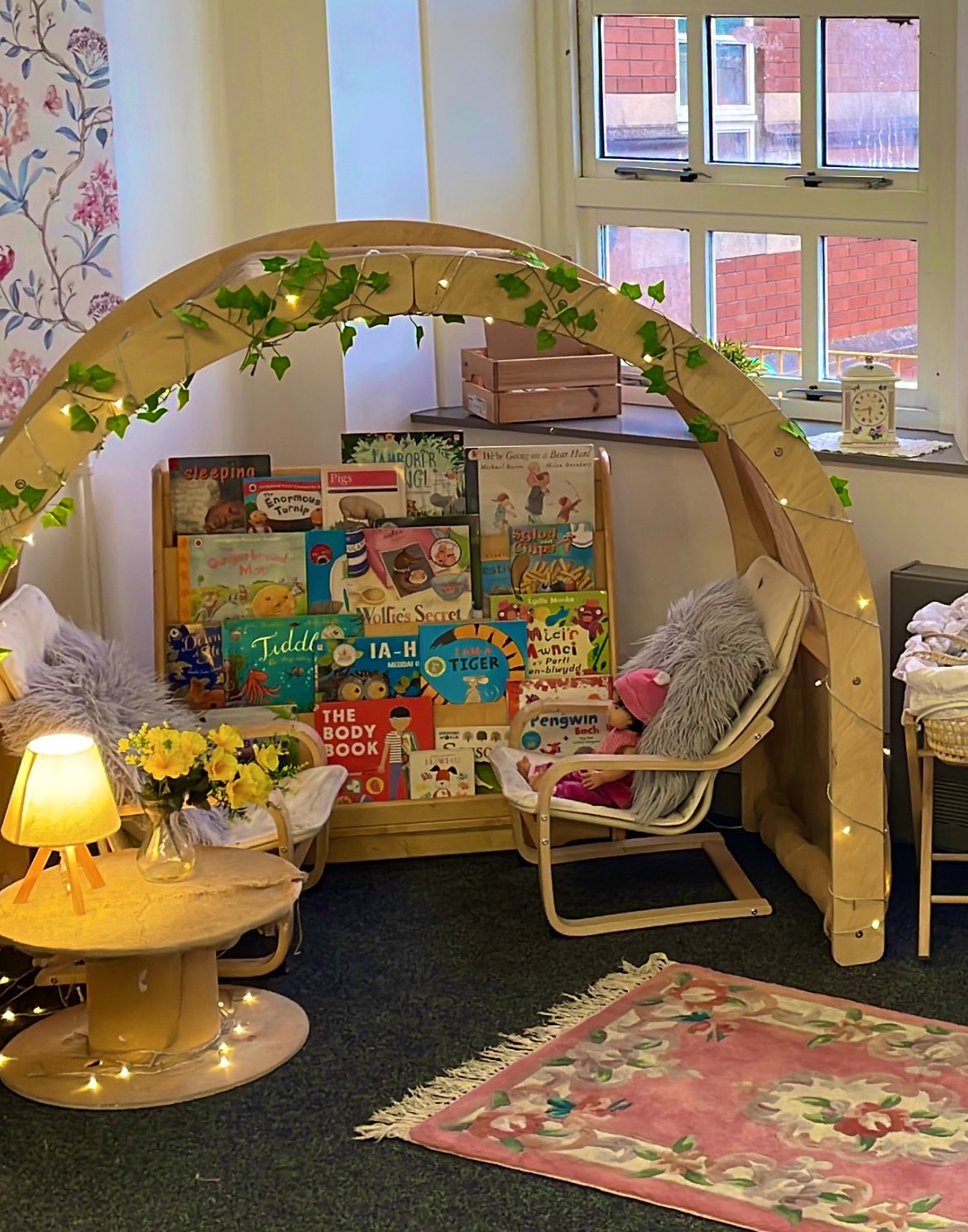
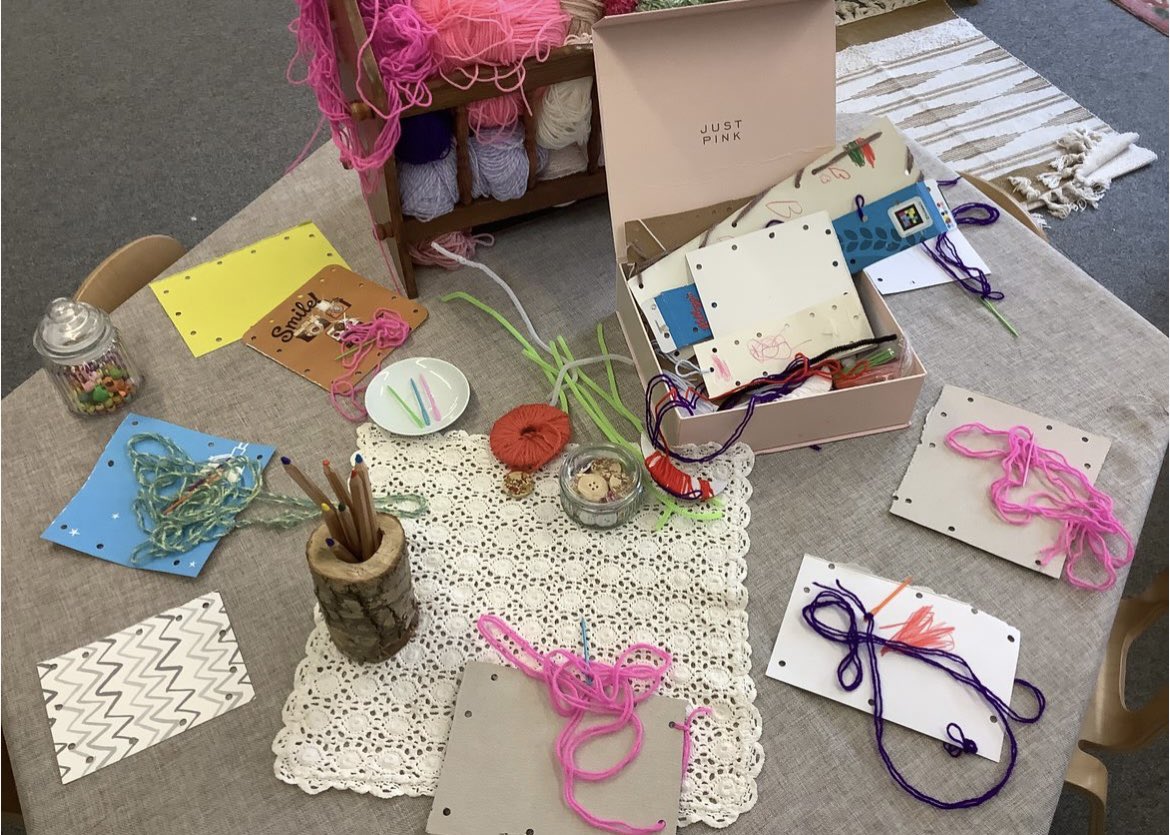
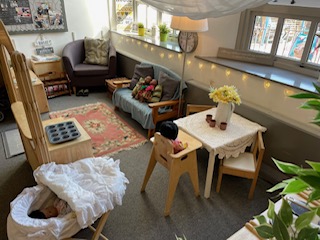
How have you shared your good practice?
The school is currently in partnership with regional consortia for early years professional development. This work involves sharing examples of effective practice of early years pedagogy, hosting sharing practice events, research to inform the professional learning offer and contributing to early years network meetings. The school led a cluster research project based on how a Froebelian approach supports purposeful learning in the early years.